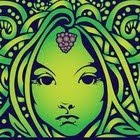 Fairly gentle chamber progressive with occasionally some sharper edges bringing them soundwise closer to Carpe Diem or Shylock. Altogether melancholic, but good chamber progressive. Gnosis 2000
Fairly gentle chamber progressive with occasionally some sharper edges bringing them soundwise closer to Carpe Diem or Shylock. Altogether melancholic, but good chamber progressive. Gnosis 2000Masterminded in the mid 70’s by guitarist composer Jean Lapouge, this all-instrumental French band mixes rock, jazz and chamber music while never completely going into any one style. Inspired by the Canterbury movement of the day, they used STRAVINSKY and DEBUSSY as their influences and sprinkled them with subtle touches of rock and jazz (HATFIELD AND THE NORTH, SOFT MACHINE, WEATHER REPORT, OREGON, EBERHARD WEBER). Failing to strike up a deal with ECM, however, they didn’t release any albums and ended up dissolving in the mid-80s. In the early 90’s, however, Musea gathered material that had been recorded between 1979 and 1981 and released two quality NOETRA CD’s plus a solo album by Lapouge (“Hauts Plateaux”). Both NOETRA albums, “Neuf Songes” and “Définitivement Bleus”, feature a large cast of musicians whose tasteful and restrained playing create an intelligent, sophisticsated, almost impressionistic type of music based on beautiful electric guitar and delicate drumming. The mellow, almost melancholy tunes are embellished by classical instruments like the violin, saxophone, cello, trumpet, clarinet, trombone, flute and oboe among others. Never falling prey to avant-garde excesses, the music does have its occasional sharper edges but nothing ever approaches the darkness of UNIVERS ZERO, for example. The pastoral jazziness may require some focused and dedicated listening, but the listener’s patience is definitely rewarded as the albums unfold.Especially recommended to fans of JULVERNE, but fans of TERPANDRE, CARPE DIEM and SHYLOCK as well as Canterbury enthusiasts in general (both connaisseurs and neophytes) should also appreciate. Lise (HIBOU), CANADA Prog Archives
Rate Your Music
Listen




















































1 comment:
I would like to downlad,if you have of course, Neuf Songes,the first album from Noetra.Thank you.
Post a Comment